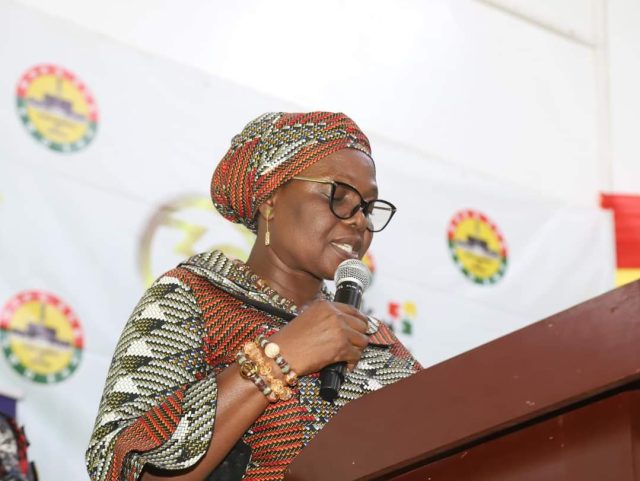Bono Regional Minister Hon. Justina Owusu-Banahene has urged Ghanaians to work together to tackle the pressing issues of poverty, inequality, and unemployment and ensure a prosperous and inclusive future for the nation.
Speaking at the 30th-anniversary celebration of Ghana’s 4th Republic held at Sunyani Technical University, the Minister highlighted the country’s democratic achievements, including peaceful transitions of power and the strengthening of democratic institutions.
She praised the platform given to the voice of the people, which has been respected and amplified over the past three decades.
While acknowledging the remarkable progress made in various sectors, such as substantial economic growth and investments in infrastructure, education, and healthcare, Hon. Owusu-Banahene reminded the audience of the challenges that remain.
She called for actionable steps to address the persistent problems of poverty, inequality, and unemployment, stressing the importance of ensuring that the benefits of democracy reach all Ghanaians.
The Minister also underscored the significance of engaging the youth in democratic processes, highlighting the mock parliament and debate as essential activities for the celebration.
She commended the participating students and encouraged them to participate in governance, emphasizing that “democracy is not a spectator sport; it requires the active participation and vigilance of every citizen.”
On his part, the Speaker of Parliament, Mr. Alban Sumana Bagbin, echoed the call to steadfastly cherish, support, and preserve the gains of the nation’s democracy as the country approaches the December 7 general elections.
He warned that Ghana would suffer greatly if its democracy were disrupted and urged all citizens to contribute to maintaining the prevailing peace.
The event, themed “Thirty Years of Parliamentary Democracy Under the Fourth Republic: The Journey So Far,” was attended by Members of Parliament, Ministers of State, students, civil society actors, political parties, youth and women groups, and traditional leaders. It underscored the collective responsibility to safeguard Ghana’s democratic progress.















